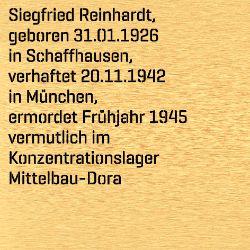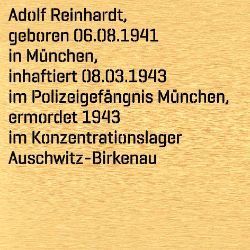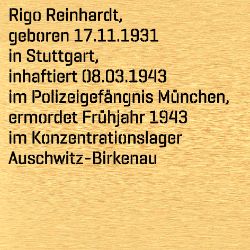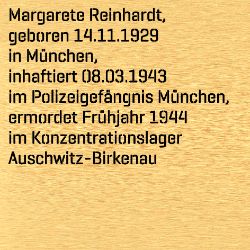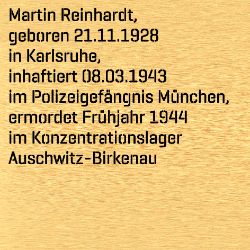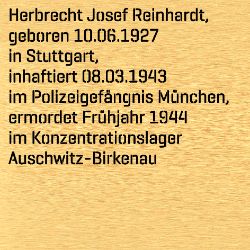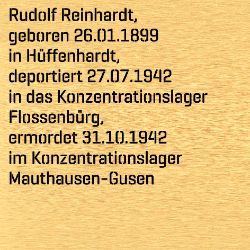Anna Bamberger was born on February 18, 1906 in Gleiwitz (today Gliwice). She married the bandleader Rudolf Reinhardt in 1925. The couple had six children: Siegfried, Herbrecht Josef, Martin, Margarete, Rigo, and Adolf. A family friend has told of the great musical talent of all the family members and their harmonious life together. As Sinti, Anna Reinhardt and her family were persecuted in the Nazi period. Upon the outbreak of the Second World War, “gypsies” were no longer permitted to move around freely and forced to remain where they were presently resident. In summer 1940, the Reinhardt family could move from Fürstenfeldbruck to Munich. Their last address was Perlacher Straße 100 (today Sintpertstraße 9-15), in a garden allotment settlement. In 1942 the family was split up. Anna Reinhardt’s husband Rudolf was deported to Flossenbürg concentration camp and was murdered by the SS just a few months later. Martin and Herbrecht were sent to the Piusheim Catholic reformatory near Glonn, Margarete to a children’s home in Munich. The police arrested the eldest son Siegfried. On March 8, 1943 the criminal police had Anna Reinhardt and her youngest children Adolf and Rigo taken to the police prison in Ettstraße. Five days later, together with other Munich Sinti and Roma, they were deported to the “gypsy compound” at the Auschwitz-Birkenau concentration and extermination camp. Anna Reinhardt had to witness the murder of five of her six children there. From May 1944, Anna Reinhardt had to perform forced labor in various subcamps, including Altenburg, where light portable antitank weapons and grenade munitions were produced. Prisoners subjected to racist persecution like Anna Reinhardt were mostly commandeered to do the extremely dangerous work, for example filling devices with the explosive substances. On March 1, 1945 the SS transported Anna Reinhardt and her sister Adelheid Bamberger to Bergen-Belsen concentration camp. There is no further trace of either. According to accounts, the sisters were violently killed shortly before the camp was liberated. (text Sarah Grandke, editor C. Fritsche, translation P. Bowman)




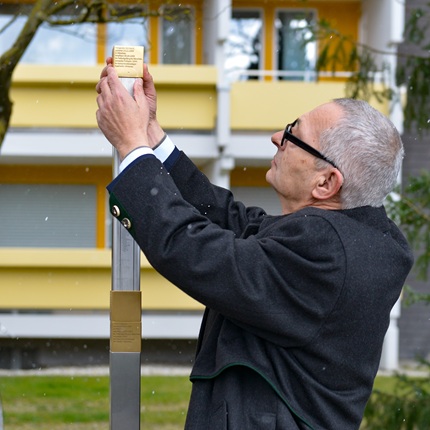
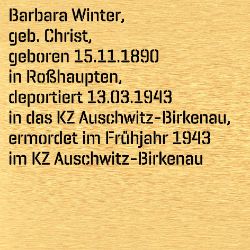
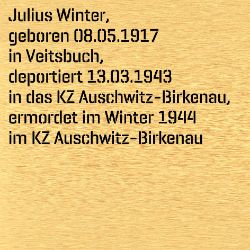
-Winter_image.jpg/jcr:content/EZ_BILD_15591.jpg)
